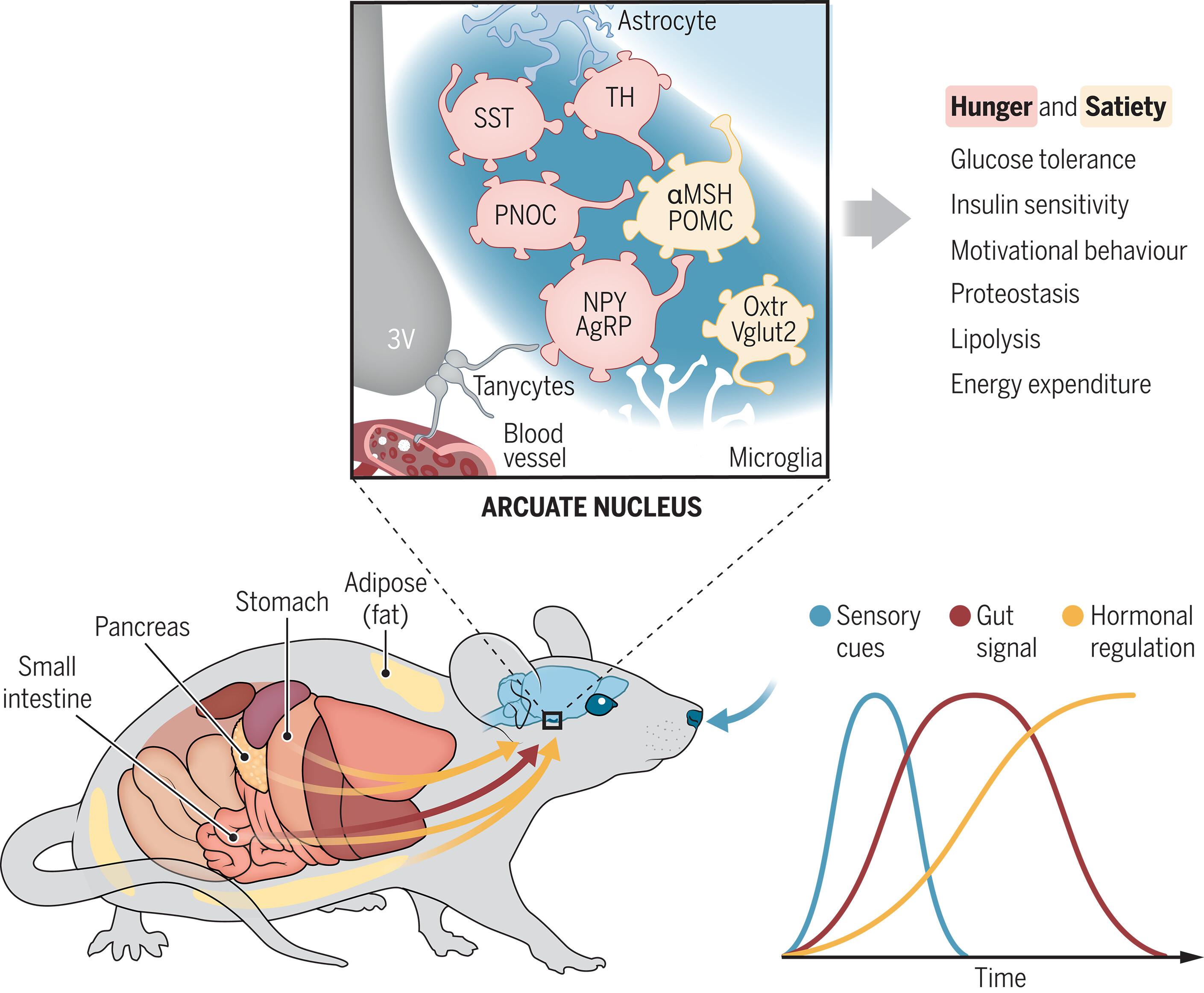Integrative neurocircuits that control metabolism and food intake
IF 44.7
1区 综合性期刊
Q1 MULTIDISCIPLINARY SCIENCES
引用次数: 0
Abstract
Systemic metabolism has to be constantly adjusted to the variance of food intake and even be prepared for anticipated changes in nutrient availability. Therefore, the brain integrates multiple homeostatic signals with numerous cues that predict future deviations in energy supply. Recently, our understanding of the neural pathways underlying these regulatory principles—as well as their convergence in the hypothalamus as the key coordinator of food intake, energy expenditure, and glucose metabolism—have been revealed. These advances have changed our view of brain-dependent control of metabolic physiology. In this Review, we discuss new concepts about how alterations in these pathways contribute to the development of prevalent metabolic diseases such as obesity and type 2 diabetes mellitus and how this emerging knowledge may provide new targets for their treatment.

控制新陈代谢和食物摄入的综合神经回路。
系统代谢必须不断调整以适应食物摄入的变化,甚至为营养供应的预期变化做好准备。因此,大脑将多种稳态信号与预测未来能量供应偏差的众多线索相结合。最近,我们对这些调节原理背后的神经通路的理解,以及它们在下丘脑中的融合,下丘脑是食物摄入、能量消耗和葡萄糖代谢的关键协调器,已经得到了揭示。这些进展改变了我们对大脑依赖性代谢生理控制的看法。在这篇综述中,我们讨论了这些途径的改变如何导致肥胖和2型糖尿病等流行代谢性疾病的发展的新概念,以及这些新兴知识如何为其治疗提供新的靶点。
本文章由计算机程序翻译,如有差异,请以英文原文为准。
求助全文
约1分钟内获得全文
求助全文
来源期刊

Science
综合性期刊-综合性期刊
CiteScore
61.10
自引率
0.90%
发文量
0
审稿时长
2.1 months
期刊介绍:
Science is a leading outlet for scientific news, commentary, and cutting-edge research. Through its print and online incarnations, Science reaches an estimated worldwide readership of more than one million. Science’s authorship is global too, and its articles consistently rank among the world's most cited research.
Science serves as a forum for discussion of important issues related to the advancement of science by publishing material on which a consensus has been reached as well as including the presentation of minority or conflicting points of view. Accordingly, all articles published in Science—including editorials, news and comment, and book reviews—are signed and reflect the individual views of the authors and not official points of view adopted by AAAS or the institutions with which the authors are affiliated.
Science seeks to publish those papers that are most influential in their fields or across fields and that will significantly advance scientific understanding. Selected papers should present novel and broadly important data, syntheses, or concepts. They should merit recognition by the wider scientific community and general public provided by publication in Science, beyond that provided by specialty journals. Science welcomes submissions from all fields of science and from any source. The editors are committed to the prompt evaluation and publication of submitted papers while upholding high standards that support reproducibility of published research. Science is published weekly; selected papers are published online ahead of print.
 求助内容:
求助内容: 应助结果提醒方式:
应助结果提醒方式:


